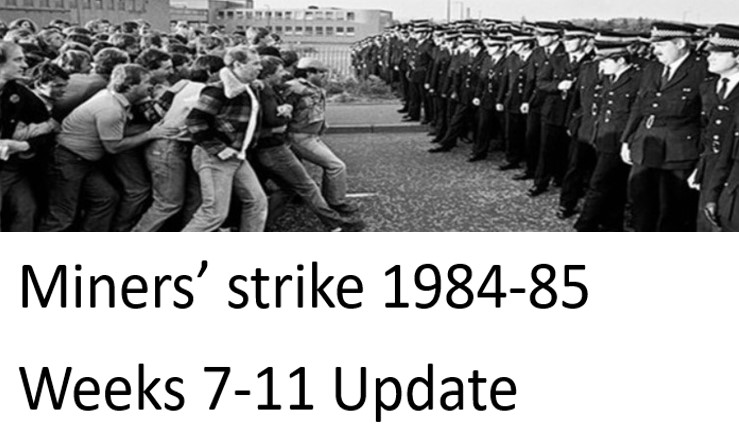By Joe Langabeer, Enfield South Labour Party and BECTU member, personal capacity
Last week, The Stage had a revealing article on an immersive production in Oxford Street called Variant 31. The newspaper exposed the attraction for its failings to provide proper health and safety working conditions and had also failed to pay its actors for up to £60,000. This is becoming a regular occurrence in the world of the Arts. Job insecurities, under-paid staff and tribunal cases are becoming the norm. There is also a crisis escalating: the Arts have been based on the greed and exploitation of capitalism for a long time. This has now trickled down into the very fabric that holds this industry together and that is its workforce. We need to challenge the structures of capitalist interest within the Arts industry and this this specific example illustrates why.
The Stage has written a few articles on the ongoing developments of this case. This includes a damning report from Camden council, indicating that the building concerned with the production should have been closed down due to “failing to provide equipment to tackle fires and failing to establish an appropriate emergency plan”. The Producer, Dale Dalton, also did not have planning permission to stage the show on the premises at Oxford Street.
The environmental health officer from the local council stated that the immersive production should be closed down as it provides a safety risk to both the consumers and staff alike. Dalton chose to ignore these warnings and pushed ahead with the production which ran for multiple weeks. During this time, actors have been hospitalised because of unsafe working conditions, had spontaneous terminations of employment and there has been a constant withholding of workers’ contractual pay. One actor, who will not be named, due to signing a ‘non-disclosure agreement’ with the company, described the situation as leaving the staff with “serious debt”. She stated:
Hospitalisations for a multiple of reasons
“Dalton’s breaches of safety resulted in actors being hurt on multiple occasions: busted lips, cut eyes, hospitalisation for torn ligaments, concussion, debris in the lungs, blood poisoning, the list goes on… The security were untrained on safe words and evacuation procedures, the fire alarms didn’t work in certain parts of the building and actors weren’t given fire/evacuation drills until the London Fire Department stepped in – after calling it a death trap and recommending it’s closure. They outlined 15 breaches of the Regulation Reform Order. The environmental health officer described the danger in the venue as “risk of death or injury from electric shock, electric burns…or fire or explosion initiated by electrical energy”.
The actors’ union, Equity, responded strongly, with a determination to process legal action against Dalton. The Stage has also been sympathetic to the workers’ case. The editorial board have shown sympathy with the actors and staff and called for action to resolve these cases of exploitation. The actor who was referenced earlier had this to say on the experience of Equity and the industry:,
Not paid for months of rehearsals
“Equity were notified by cast members immediately, two of whom were suspiciously fired shortly after. Equity provided legal advice and managed to regain their jobs for them (had they left they would not have been paid for their month of rehearsals – though nobody has been paid as of now). Equity has been a saving grace for this team of actors, assisting even when a majority of the cast were not members because they feel a responsibility to help actors wherever necessary – of course now a vast majority of said artists are members of the union.
“At this current point in time Equity are dealing with Dalton and his team to help everyone with the next best course of action. Unfortunately cases like this in the industry are not unheard of. Some cast members falling into similar traps almost immediately after this case. There is a list called The Watchlist, made by artists for artists warning them away from employers/directors like this, and sadly, that list is far too long and the law at the current time simply can’t do much about it.”
These issues are just a small margin to a much bigger problem. An article, written by Lyn Gardner for The Guardian, has challenged the theatre industry’s naivety towards exposing exploitation but not in its own backyard. The industry is littered with zero-hours contracts, unpaid wages and a complete ignorance towards workers’ rights and conditions.
This article also exposes the financial cuts that were made by the Tory Government in their cruel austerity programme, which has stripped the Arts of innovation and have developed a mentality towards developing Art only for commercial and financial success. And it is a lucrative business, almost every influential producer from the West-end has exceeded success in their profit-making, with many of them even making the Sunday Times Top 100 Rich List on multiple occasions.
As well as other structure’s of our society, Art is now suffering from ‘cultural hegemony’ which Antonio Gramsci rightly expanded upon and is prominent to exposing the pacification of political consciousness and silencing any alternative formats that challenge the ruling class.
This crisis will not be resolved on its own; there must be steps taken to ensure that this kind of exploitation and attacks on the industry of our culture must be met with resistance. Firstly, the labour movement must ensure that all of the workers in this industry must be active in the unions. The dominant unions are Equity and BECTU. Labour Party members must campaign for these unions to be re-affiliated and to ensure that they have the strength to defend workers from exploitation.
Secondly, the decentralisation of London theatre is paramount to its survival. This was a manifesto pledge in the Labour Party’s 2019 Manifesto and there should be a constant campaign for it to be upheld. The Arts industry has spent too long being powered by London’s cultural significance and should be expanded to raise the class consciousness in all parts of the country.
Finally, and the most important point of them all, we must develop a case for nationalising the Arts industry and putting it back into public ownership. Like many industries, the culture sector has been chipped away into private hands and must be brought back into the public sector. This will create innovative Art that not only expands culture, but will also expand class consciousness and deliver broader accessibility to the arts.
January 23, 2020



